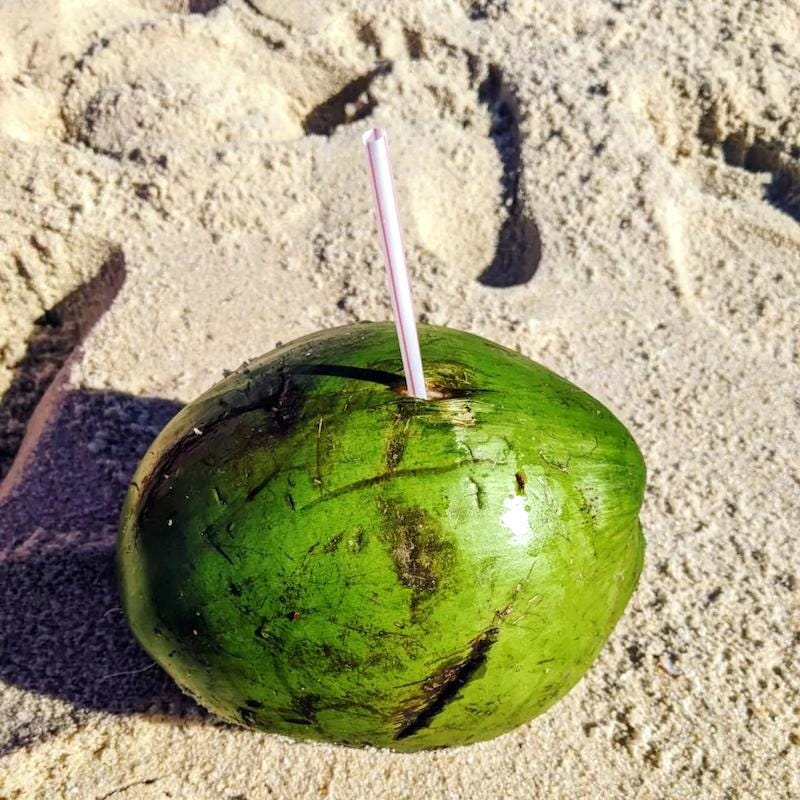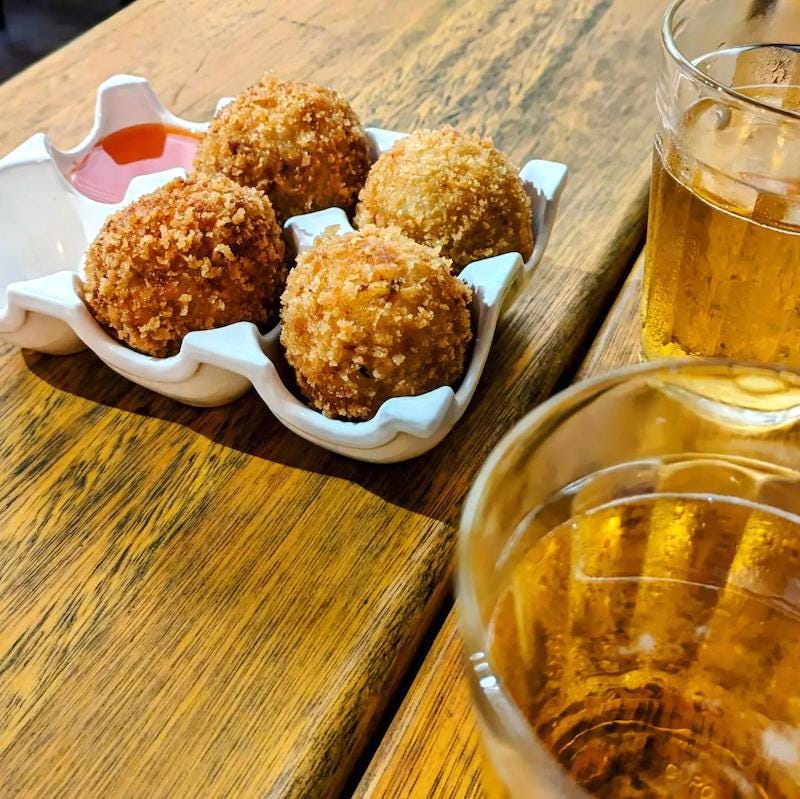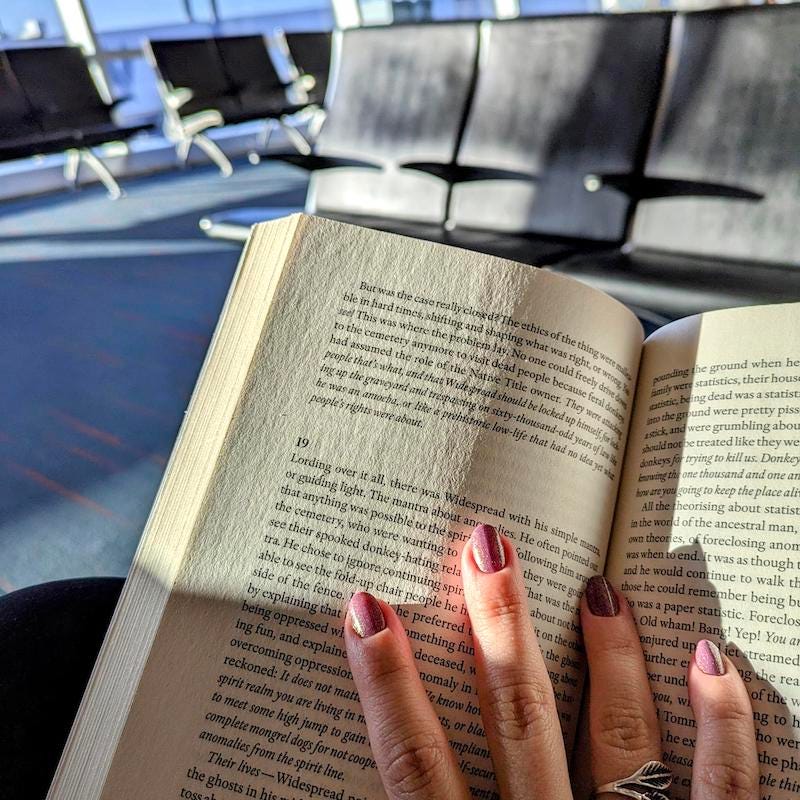Borogodó
About a month in Rio, the tropical je-ne-sais-quoi, and not finishing a book
A month in Rio.
Well, 33 nights, to be exact, according to the Airbnb billing.
Such a strange little pocket of time, to experience a space I know well but have come to rediscover all over again, each time I have returned home since moving abroad in 2011. And, towards the end of this summer/winter trip, one handful of verses kept coming back to mind, over and over again, whenever I found myself not doing much, just looking around, outside, but also in any restaurant, café, or bookstore.
Minha terra tem palmeiras,
Onde canta o Sabiá;
As aves, que aqui gorjeiam,
Não gorjeiam como lá.
They come from A Canção do Exílio [Song of Exile], written by Brazilian Romantic poet Gonçalvez Dias in 1843. Romanticism is not usually my thing, especially in its nativist and indianist early bent as seen in Brazilian literature of the 1840s. But Gonçalvez Dias was a Law student in Coimbra, Portugal, when he wrote those lines, famously missing his homeland and its sights and sounds, and perhaps there’s a point of confluence between our sensibilities in this feeling. Saudade, one of those untranslatable words: a feeling of missing something, sometimes concrete, sometimes intangible, in a mix of nostalgia and melancholy and longing and dreaming of. Gonçalvez Dias wasn’t exiled in the modern, political sense of the word, and nor am I. The sense of separation, nevertheless, is irremediable.
There’s something about the way sunlight looks different that completely changes everything. I am sure many photographers and other graphic artists could expound on the subject in several hundred pages. Or you could just look at Monet’s series of Rouen cathedral paintings and understand what it does to a place.
But to me, the most interesting is how sunlight in Rio feels different, acquiring almost a synesthetic quality. Even in the winter, it is denser than the summer sunlight in New York, although not as oppressive—the difference between thick soft cotton and scratchy cotton-poly mix. The sky is a more saturated yet brighter shade of blue. Fog is yellow-beige, rather than icy-grey. Clouds are taupe, not steel-colored. Leaves are of a juicier dark green.
My Rio is definitely quite different from Gonçalvez Dias’s native Maranhão. Yes, there are palm trees and sabiás (thrushes), but the sound that most caught my ear (and that I think of now as I write this) is not of the sabiá but of the bem-te-vi in the Indian almond trees that abound in Rio. And can I make a tiny note about this bird? How wonderful is it that its name in Portuguese—a close approximation of its call—means something like an almost sassy “I saw you well” rather than the just okay English rendition of the same call as “kiskadee.”
So there’s something about the air, the sounds, that makes me understand Gonçalves Dias across time and space. And also, the bananas. Brazilian bananas are just unbeatable.
In general, it was a month of eating a whole lot. After several weeks of barely cooking anything and fixing lazy salads and dips as a way to try and not make worse the effects of neverending heatwaves in New York City, I was able to dive back into stews, and pasta, and pizza, and I had so much seafood that would make Ariel and Flounder blush. Plus the amazing cocktails, with so much fresh fruit pulped and diced and pureed into icy cold glasses.
And all the mate and coffee I could get my hands on, frequently served in the most Brazilian of glasses, the copo americano (American cup)—a faceted glass cup, whose original 190-milliliter version was ubiquitous in popular bars and bakeries and have now and which has now multiplied in a full line, from 50-milliliter shot glasses to full pints. There’s something inherently fun about a cold beer or a hot milk coffee served in one of these small, classic containers, a distillation of some of the best that Rio offers, a symbol of its borogodó.
Every Brazilian knows borogodó in their core, even if not everyone can articulate its meaning. Dictionaries will state that it refers to physical attractiveness, but everyone knows that it goes beyond that. Borogodó is that intangible quality that makes something or someone special, captivating, interesting, the tropical je-ne-sais-quoi. Which, in this case, means all the little things that make Rio remain home in ways that no other city ever will.
Settling in an Airbnb studio for this long allows for a semblance of routine to be created, or re-created in the image of our home routine. At least in theory. Because yes, I could sit on the couch after breakfast with a cup of coffee and a book and read for an hour before getting up and ready for the rest of the day, if it weren’t for one small detail: for a little over two weeks, the Olympics were on. And how could I say no to a random assortment of sports on the TV, with glimpses of Paris in between events? It was joyful, it was nerve-racking, I yelled at the TV way too many times because of soccer and volleyball and, yes, I even got emotional the few times we got to hear a snippet of Brazil’s national anthem (the full anthem being so long, that even just the first half needs to be trimmed down a couple of verses to fit the time allotted).
Yes, routine has a way of getting away from me the moment something slips out of place, and I don’t blame myself for allowing that to happen from time to time. And, of course, it didn’t go super smoothly while not being at home, with things to watch and people to see, and the biggest victim was my habitual reading session in the morning.
But it wasn’t just because I wasn’t on my couch (which I missed dearly), nor because of all the myriad distractions that crept in. No, the big culprit was, I am sad to say, the book I brought with me.
My strategy was clear and, I thought, sound: I don’t often read long books, but since I would be away from my shelves for several weeks (starting with a long stretch at the airport waiting for one of our flights), I figured it was the perfect opportunity to pick one the Thick Ones lying around, which should take me through the end of July at least and leave me with a couple of weeks to browse some shelves in Rio and pick up a couple of new titles.
Not only did I not finish the Thick One, I did more than browsing and picked up more than a couple of books over the weeks. And I did finish two Brazilian titles (a collection of short stories by Lygia Fagundes Telles and a novel by Micheliny Verunschk) in the meantime, all while trying not to fall asleep or get utterly distracted by the long novel side-eyeing me from the table. You could say I didn’t click with it. You could even say that it lacks some borogodó.
So, I haven’t finished the long novel, and I keep beginning and ending other, shorter books in the meantime. And yes, I could stop reading it. DNF. But can I?
And now, having been reunited with my couch and bed, a stone-etched routine still eludes me. Perhaps because it’s still summer, and summer break, and so the switches have yet to flip somewhere in my mind. Re-building a routine is, as we all know, much harder than seeing it slip away. It takes some conscious effort to turn certain steps of the day into unconscious beats again. But one step at a time. For now, it’s back to reading every morning on my couch, and missing the bem-te-vi just a little bit.






![A brick wall with a blue plaque saying "Aqui tem borogodó" [there's borogodó here]. A brick wall with a blue plaque saying "Aqui tem borogodó" [there's borogodó here].](https://substackcdn.com/image/fetch/$s_!7E80!,w_1456,c_limit,f_auto,q_auto:good,fl_progressive:steep/https%3A%2F%2Fsubstack-post-media.s3.amazonaws.com%2Fpublic%2Fimages%2F0819c775-d0d4-477c-a0f7-e7bc302398d4_1215x1215.jpeg)
I love these untranslatable words/concepts. And I am sure there is a reason you didn’t tell us but I can’t help but wonder what this fat book is that didn’t grab you!
I really loved reading this. It makes me think of how often I pack books on a vacation and don’t end up wanting to read them. And how sometimes that says a lot about how much I’m enjoying myself. The book will still be there to read any time. I’m glad you stuck with the drinks and foods and sports and other reads that could help you make the most of your time in Rio!